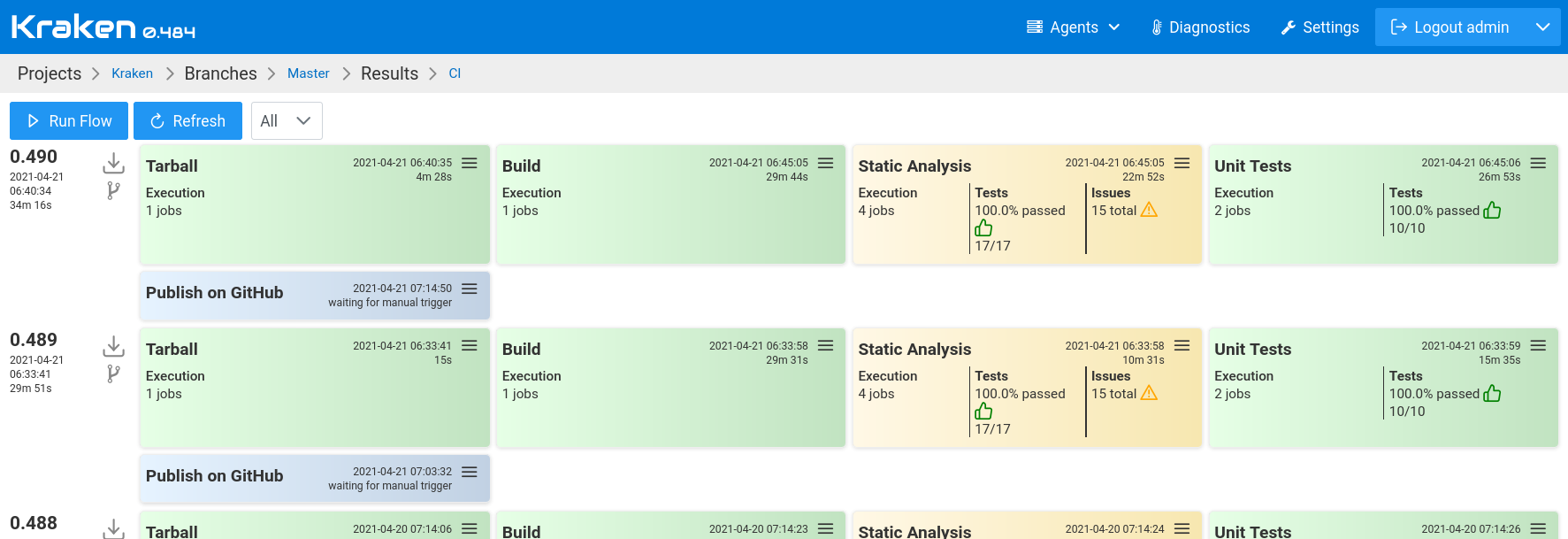Kraken CI: A Scalable and Open-Source CI/CD System for Efficient Testing

In today’s fast-paced software development landscape, Continuous Integration and Continuous Deployment (CI/CD) systems play a critical role in ensuring the quality and efficiency of software releases. One such system is Kraken CI, an open-source and highly scalable on-premise CI/CD platform. In this article, we will dive deep into the key aspects of Kraken CI, exploring its features, installation process, usage examples, roadmap, and the contributions that make it a valuable asset to the open-source community.
Features and Architecture
Kraken CI is known for its scalability and focus on testing. It offers a modern and robust system architecture that can handle large-scale testing requirements. The platform enables developers to integrate their software repositories seamlessly, ensuring that every code change goes through a rigorous testing process. With a solid data model and well-documented APIs, Kraken CI simplifies the process of setting up and managing continuous integration and deployment pipelines.
Technology Stack
Kraken CI is built using a combination of modern technologies and industry best practices. It leverages popular tools and frameworks that enhance its scalability, performance, and security. The technology stack includes:
- Backend: Python (Django, Flask)
- Frontend: JavaScript (Vue.js, React)
- Database: PostgreSQL
- Messaging: RabbitMQ
Installation and Usage
Getting started with Kraken CI is straightforward. The platform provides a comprehensive quick start guide that helps users get up and running quickly. The installation process is well-documented, offering step-by-step instructions for a smooth setup. Developers can also refer to the detailed developer’s guide, which provides insights into the inner workings of Kraken CI.
Usage examples and guides are available to assist in harnessing the full power of Kraken CI. These resources cover topics such as pipeline configuration, integration with popular version control systems, and advanced testing strategies. Additionally, Kraken CI offers a demo site where users can explore the platform’s capabilities and experiment with different features.
Roadmap and Contributions
Kraken CI is a community-driven project that actively encourages contributions. The platform’s roadmap showcases proposed features and known issues, providing transparency and inviting stakeholders to engage in its development. Contributions to the Kraken CI community are highly appreciated, as they contribute to its continuous improvement and growth.
Licensing and Support
Kraken CI is distributed under the Apache 2.0 License, ensuring its open-source nature and promoting collaboration. The platform benefits from community support, with regular updates, bug fixes, and security patches. For questions or support, users can reach out to the project’s contact person, Michal Nowikowski.
Conclusion
Kraken CI is a powerful, scalable, and open-source CI/CD system that brings efficiency and reliability to the software testing process. With its well-documented APIs, robust data model, and emphasis on testing, Kraken CI simplifies and streamlines continuous integration and deployment. By welcoming contributions from the open-source community, Kraken CI remains a dynamic and constantly evolving platform. Whether you are a developer, solution architect, or a stakeholder involved in software development, Kraken CI is a valuable tool to consider integrating into your CI/CD workflows.
If you have any questions or would like to explore Kraken CI further, feel free to reach out. We are excited to hear from you!
References
- Kraken CI Repository
- Kraken CI Official Website
- Kraken CI Installation Manual
- Kraken CI Developer’s Guide
- Kraken CI Contributing Guide
- Kraken CI Roadmap
- Kraken CI Licensing Information
- Contact: Michal Nowikowski (godfryd@gmail.com)
Leave a Reply